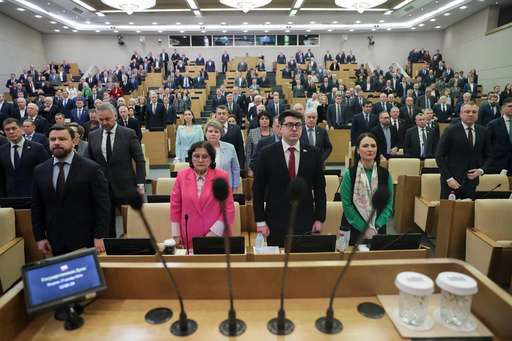
Moscow – In a recent legislative move, Russian officials have passed a bill that expands the criteria for what constitutes high treason, reinforcing the government’s grip on dissent as the conflict in Ukraine approaches its third anniversary.
The amendments received backing from the State Duma, the lower house of Russia’s parliament, during their second and third readings. This updated legislation now categorizes involvement with any organization deemed to be engaged in “activities detrimental to the security of the Russian Federation” as part of treason.
Previously, the law offered a more limited definition, primarily focusing on individuals who switched allegiance to enemy forces by joining their military ranks. Convictions for high treason can lead to life imprisonment, reflecting the serious nature of the offense.
Vasily Piskarev, who heads the Duma’s committee on security and is one of the architects of the bill, emphasized the urgency of the situation, stating, “As our soldiers fight for the sovereignty of Russia, there can be no neutral or peaceful organizations affiliated with the enemy. We must not permit anyone to operate on our territory in support of the enemy.”
Human rights groups have expressed concern that the loosely worded provisions of the bill could be misused to target individuals linked to any Ukrainian affiliations, potentially extending to those with connections to Western organizations or businesses.
The amended legislation now also criminalizes vaguely defined “assistance” to foreign entities, further broadening the existing legal framework surrounding treason. In addition to these measures, the bill proposes penalties of up to 15 years in prison for foreigners and stateless individuals accused of aiding what is seen as enemy activity against Russia’s security.
Since President Vladimir Putin’s decision to deploy troops to Ukraine in February 2022, there has been a noticeable surge in treason and espionage cases, encompassing an array of individuals including critics of the Kremlin, independent journalists, and researchers. This intensified crackdown has raised alarm bells among various rights organizations, highlighting the ongoing erosion of civil liberties within the country.
